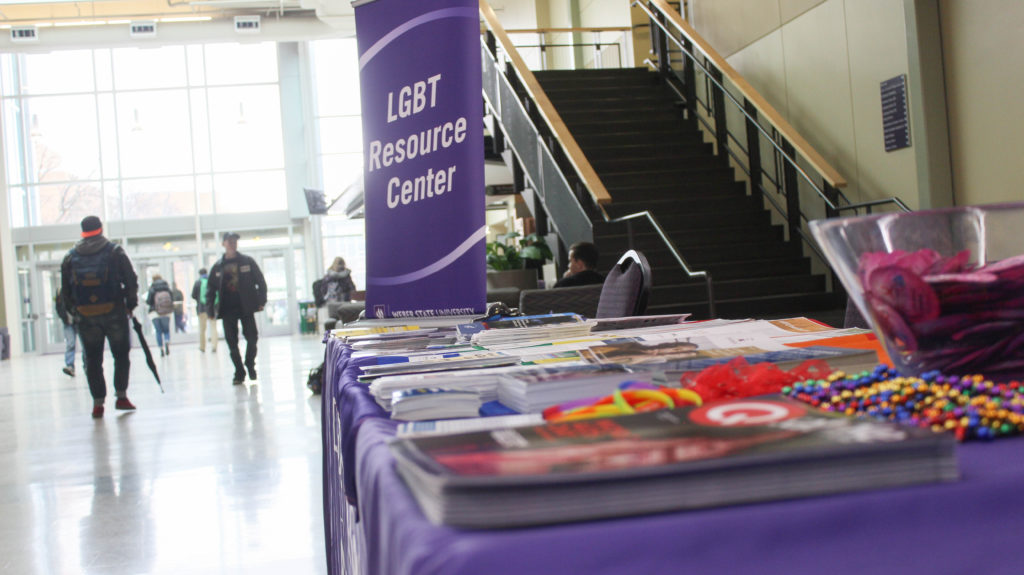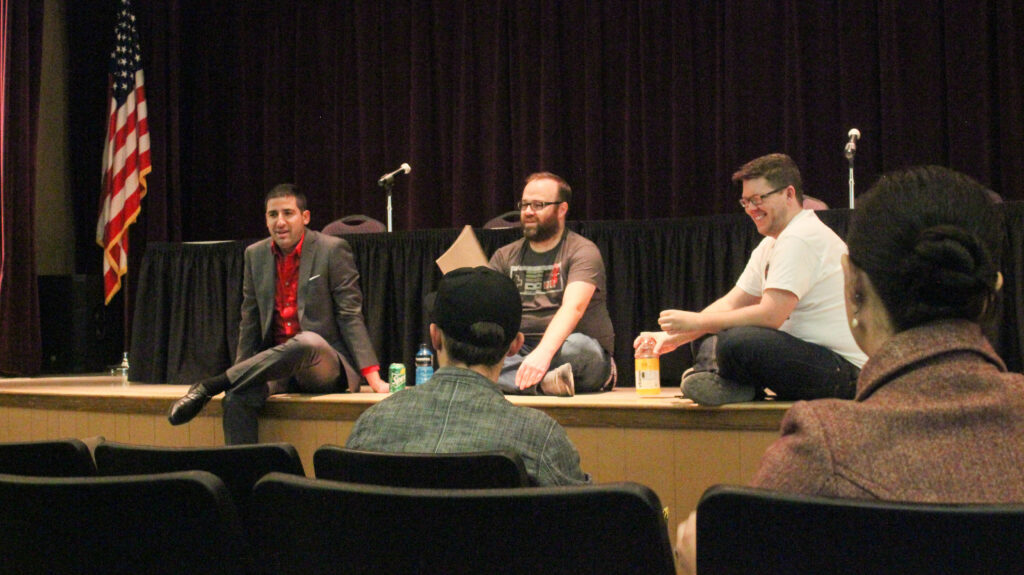
The Weber State LGBTQ Resource Center recognized World AIDS Day on Dec. 1, focusing on the mission to fight the stigma surrounding HIV and AIDS.
The LGBTQ Resource Center spent the day raising awareness about HIV and AIDS and the stereotypes that surround the diseases.
In observance of World AIDS Day, Weber State offered free HIV testing in collaboration with the Weber-Morgan Health Department from 9 a.m. to 2 p.m. in the Shepherd Union.
“With our campus population, there is a lack of awareness around HIV and really what it is and how it impacts people,” said Kestin Page, president of the WSU Gender and Sexuality Alliance.
Guest speakers also shared their personal stories and experiences with HIV during a panel discussion: “First Person: Living with HIV/AIDS.” The discussion focused on health issues, relationship struggles and the stigmas that stem from living with HIV in 2016.
According to Harrison Spendlove, executive master’s student in healthcare administration and guest speaker, the stereotypes about HIV in connection with the LGBTQ community are still prevalent. He said this event was a great way to start a conversation to help end those stigmas.
“It is important to raise awareness because it affects more than just the LGBT community,” he said.

In fact, one of the largest at-risk populations for HIV and AIDS is people from the ages of 18 to 24.
Despite this age group reflecting the traditional student population on campus, there is no HIV testing offered at Weber State year round, according to Page.
He said that is why having a free HIV testing day at Weber State is such a huge benefit for all college students.
“The virus doesn’t care if you are a man or a woman, if you are gay or straight, or if you are black or white, it just doesn’t care,” said Kestin, “So it’s just about raising general awareness of getting tested and knowing that it is a disease that impacts everyone.”
From counseling offerings at Weber State to pamphlets about HIV, the LGBTQ Resource Center also set out a booth with information in the heart of the atrium.
Clad in red ribbons to represent HIV awareness, Students with Disabilities Senator Cade Anderson wanted to make sure all students understood the importance of getting tested and treated for HIV or AIDS.
“If you catch it early, it will change your life in tremendous ways. It’s about getting tested and knowing early on,” he said. “And that’s what the key is these days to surviving and thriving in life.”
According to the World AIDS Day Website, HIV is still a rare and taboo topic to discuss. However, despite the new developments in treatment, many still don’t understand what HIV is or what it’s like to live with the condition.
For Spendlove, he believes some people have ignored the issues of HIV and AIDS because they think they already know everything about the disease. But he argues that there is still not enough awareness and understanding.
“The view on HIV has changed. This isn’t the ’80s anymore. We are not dealing with the huge epidemic outbreaks and the fear of not knowing what it is,” he said. “But right now, I feel like we are dealing with the idea that we still don’t need to be educated on it.”
Spendlove said students should not only get educated and have a conversation about HIV, but they should also show support by helping stop the stigmas that surround it.
He encouraged students and community members alike to be proactive, not only with their health but with helping others who may be struggling with the disease in some aspect of their life.
“It’s a matter of being involved, joining clubs, helping with charity drives, even just speaking up for those who might be getting bullied or looked down upon for having the disease,” he said. “It’s important that everyone understands what HIV is and that it is actually something that affects everyone.”








